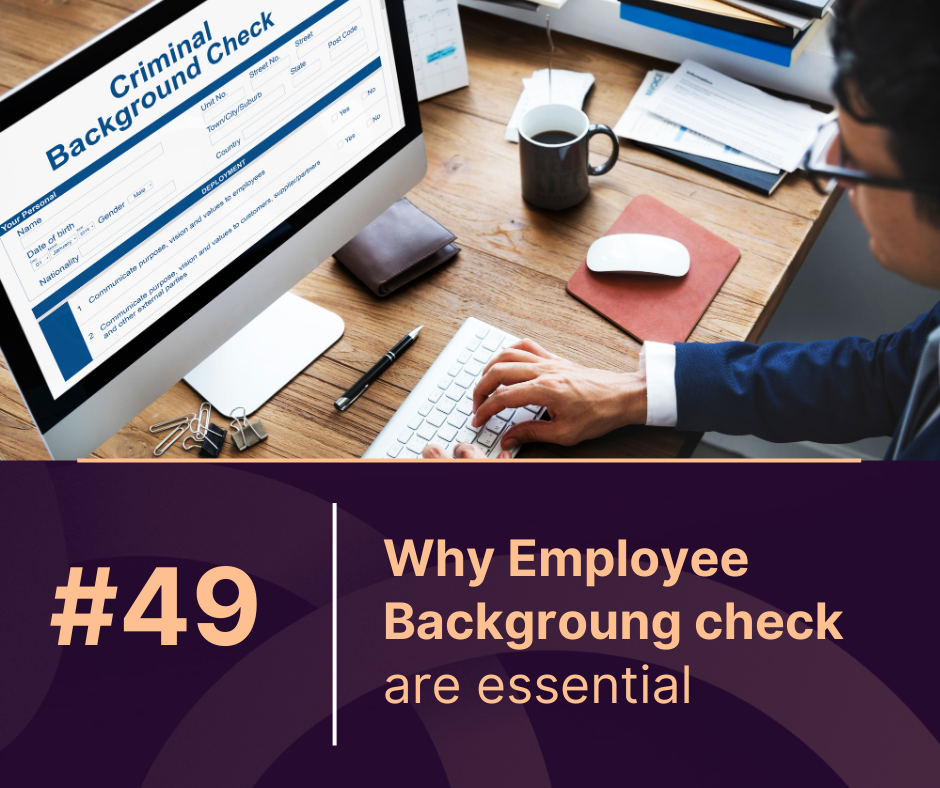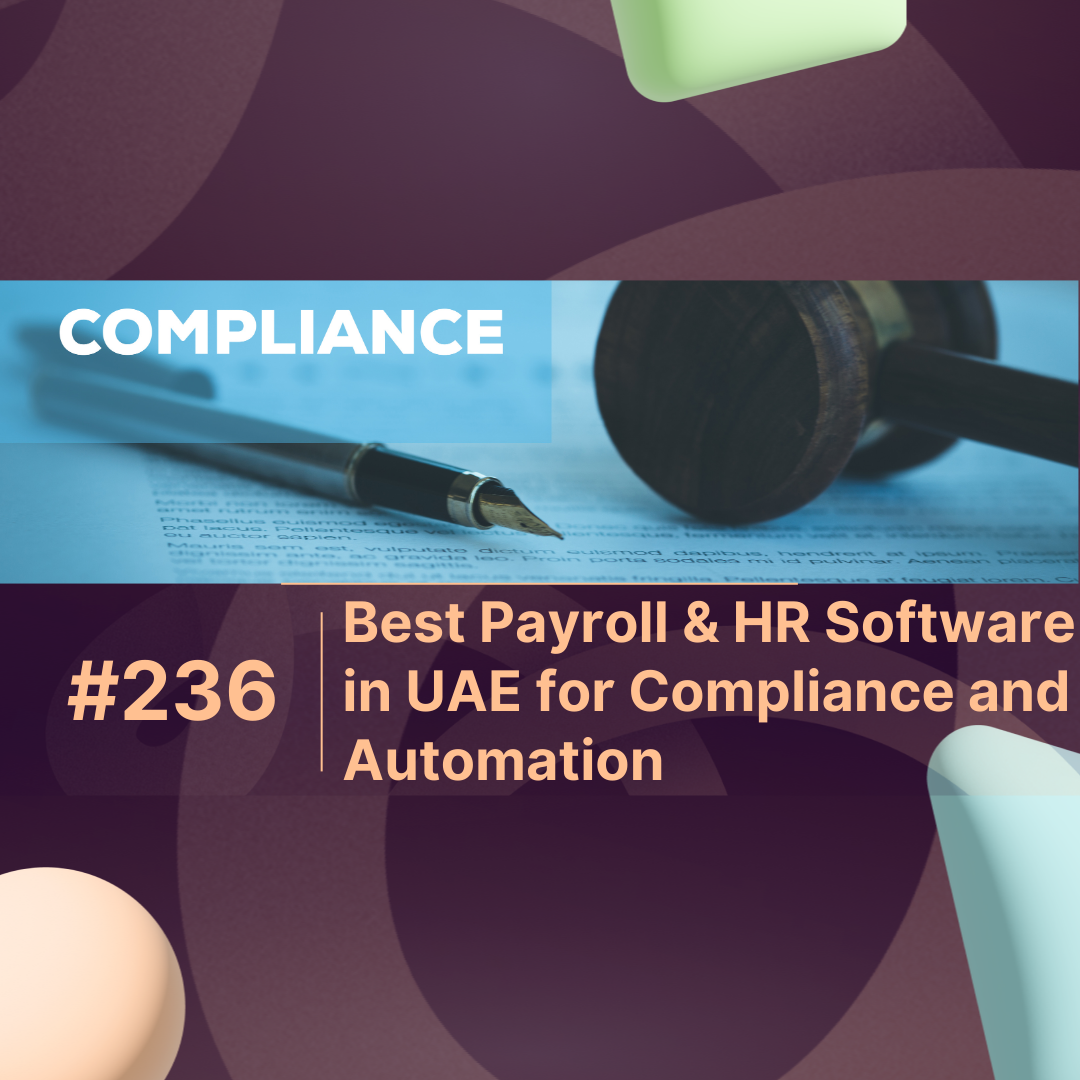Hiring the right talent is one of the most critical aspects of growing and sustaining a successful business. However, as organizations expand, the risk of hiring individuals who may not be a good fit or worse, pose a security or legal risk increases. That’s where employee background checks come into play. By ensuring that candidates have a clean and accurate professional history, these checks help businesses foster a trustworthy, safe, and reliable workforce.
In this blog post, we’ll explore why employee background checks are essential and how they contribute to building a solid organizational culture and improving business outcomes.
The Importance of Trust in the Workforce
Trust is the foundation of any successful business. Whether it’s between employees and management, among team members, or with clients, trust ensures smooth operations, fosters collaboration, and boosts productivity. However, building trust requires confidence in the integrity of each employee, and that’s where the best employee background check practices come into play.
Employee background checks provide an organization with the assurance that their hires are qualified, reliable, and ethical. They help verify a candidate’s claims about their education, work experience, and legal history. More importantly, they help prevent potential issues down the road, such as workplace misconduct, financial crimes, or reputational damage. This verification process is especially critical in industries like finance, healthcare, education, and any other sector dealing with sensitive data or vulnerable populations.
What Does an Employee Background Check Involve?
A thorough employee background check involves several key elements, each of which helps build a comprehensive view of a candidate’s history. Here’s what’s typically included:
- Identity Verification: Ensures that the candidate is who they say they are by cross-referencing government-issued IDs.
- Criminal History Check: Looks for past criminal offenses, which can be a red flag depending on the severity of the crimes and the nature of the job.
- Employment Verification: Confirms that the candidate’s stated job history is accurate, validating their skills and experience.
- Education Verification: Ensures the candidate has the degrees or certifications they claim to have achieved.
- Credit History: For roles involving financial responsibility, a credit check can reveal red flags such as bankruptcies, excessive debt, or other financial issues.
- Reference Check: Speaking to former managers or colleagues provides insight into a candidate’s work ethic, reliability, and interpersonal skills.
Each of these components helps HR professionals and hiring managers make informed decisions and avoid costly hiring mistakes.
Preventing Workplace Risks and Legal Issues
One of the most important reasons for conducting an employee background check is to mitigate potential risks. Hiring an individual with a criminal background, undisclosed drug abuse, or a history of dishonesty can open the door to serious workplace issues, including theft, harassment, or even violence.
Moreover, organizations are legally required to create a safe working environment for all employees. Hiring someone without conducting a thorough background check can lead to legal liability if that employee later engages in misconduct or poses a danger to others. For instance, if an employee with a history of violent behavior is hired and later harms a coworker, the organization could be held legally responsible for negligent hiring practices.
Enhancing Organizational Culture
A strong organizational culture relies on transparency, trust, and accountability. When an organization makes background checks a standard part of its hiring process, it demonstrates a commitment to ethical hiring and building a positive work environment.
Not only does this foster trust among existing employees, but it also sets a clear expectation for new hires: integrity matters. Employees who know they work for a company that values honesty and trust are more likely to feel safe and engaged in their work. This engagement often translates into higher job satisfaction and improved productivity.
Improving Retention Rates
High employee turnover is costly and disruptive. Employees who leave the company within a short time of being hired may not have been fully vetted during the recruitment process. They may have overinflated their qualifications or underrepresented past issues that could have been caught through a thorough background check.
By ensuring that all hires are fully vetted, organizations are more likely to bring in candidates who are a better fit for the job and the company culture. This not only reduces turnover but also improves long-term retention rates.
Protecting the Company’s Reputation
An organization’s reputation is one of its most valuable assets. Hiring employees who later become involved in criminal activities, lawsuits, or public scandals can tarnish the company’s image. Whether it’s a case of embezzlement, harassment, or fraud, the negative publicity can take years to recover from. Conducting thorough background checks significantly reduces the risk of hiring individuals who may harm the company’s reputation, helping to safeguard the trust of clients, investors, and the public.
How to Choose the Best Employee Background Check Service
To get the most value out of background checks, it’s crucial to choose the best employee background check service for your organization. Here are a few things to look for:
- Comprehensive Screening: Ensure the service covers all relevant checks for your industry, from criminal records to employment history.
- Compliance: The background check provider should comply with all relevant laws, including the Fair Credit Reporting Act (FCRA), and ensure that the process is ethical and transparent.
- Speed and Accuracy: While you don’t want to rush the hiring process, you also don’t want unnecessary delays. Look for a provider that can deliver fast yet accurate results.
- Customization: Every role is different, and so are the screening needs. Choose a service that allows you to customize the scope of the background check based on the specific role you’re hiring for.
Conclusion
A well-executed employee background check is an essential tool for building a trustworthy workforce. It helps mitigate risks, ensures compliance, and promotes a positive company culture. By thoroughly vetting candidates before they join the organization, businesses can make more informed hiring decisions that protect both their reputation and their bottom line. In the long run, a trustworthy workforce leads to increased productivity, employee satisfaction, and overall business success.
FAQs
Q: What is included in a typical employee background check?
A: A typical background check includes identity verification, criminal history check, employment and education verification, reference checks, and sometimes credit history, depending on the role.
Q: How do background checks help reduce legal risks?
A: By ensuring that employees don’t have undisclosed criminal records or other issues, background checks help organizations avoid legal liability for negligent hiring.
Q: Why is trust important in the workplace?
A: Trust fosters collaboration, boosts morale, and increases productivity. It’s essential for a healthy organizational culture and effective teamwork.
Q: Can background checks improve employee retention?
A: Yes, by ensuring that new hires are a good fit for the job and the company, background checks help reduce turnover and improve long-term retention.
Q: What are some key features to look for in an employee background check service?
A: Look for a service that offers comprehensive screening, compliance with legal requirements, fast and accurate results, and customizable options based on job roles.



